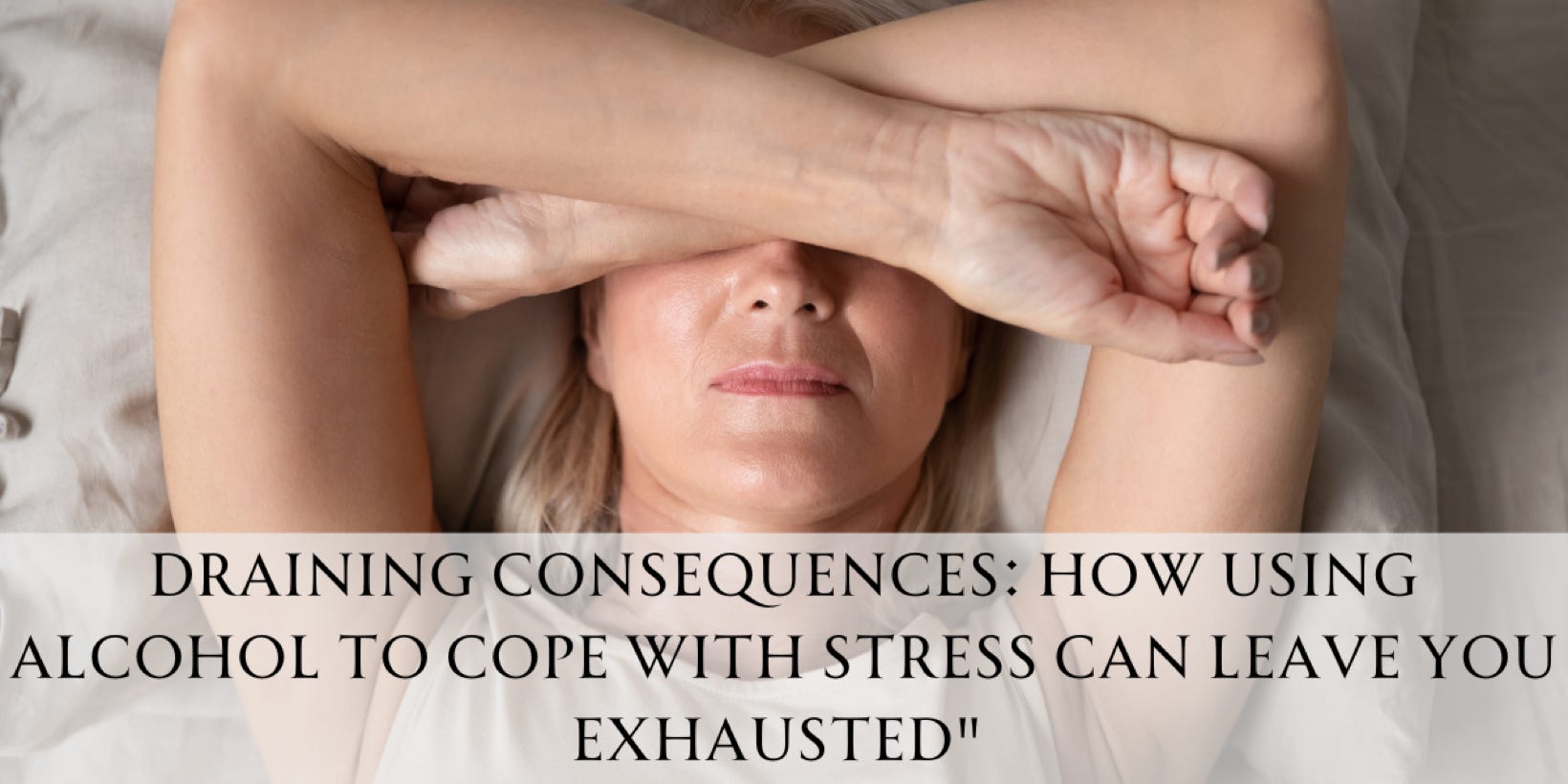Getting good-quality sleep is an important part of stress management. Unfortunately, if you drink to unwind, you may be reducing your ability to cope with stress by increasing your levels of exhaustion.. Alcohol has a significant impact on sleep, influencing both its quality and structure. While alcohol may initially make you drowsy or even help you fall asleep faster, its effects on sleep stages and overall sleep architecture can be detrimental. The effects of alcohol on sleep are as follows:
1. Interrupted Sleep Stages: Alcohol consumption can interfere with the natural sleep cycle by changing the distribution of sleep stages. It suppresses rapid eye movement (REM) sleep, which is essential for dreaming, memory consolidation, and overall cognitive function. This interruption can result in fragmented, less restorative sleep.
2. Reduced REM Sleep: While alcohol may help you fall asleep faster, it frequently reduces the amount of REM sleep you get. Emotional processing, learning, and mood regulation all require REM sleep. Reduced REM sleep can leave you groggy, less alert, and emotionally drained the following day.
3. Increased Wakefulness in the Second Half of the Night: Alcohol can cause increased wakefulness in the second half of the night after the initial sedative effects wear off. As a result, you may wake up several times and find it difficult to fall back asleep, resulting in a fragmented and less restful night's sleep.
4. Sleep Apnoea and Snoring: Alcohol has been shown to relax the muscles in the throat and airway, increasing the likelihood of snoring and obstructive sleep apnea. These interruptions can further disrupt your sleep, resulting in awakenings and a reduction in sleep quality.
5. Dehydration: Because alcohol is a diuretic, it increases urine production. This can result in dehydration, which can impair your ability to sleep deeply and throughout the night.
6. Impaired Sleep Quality: Even if you are able to sleep for an extended period of time after consuming alcohol, the overall quality of your sleep is frequently compromised. Your sleep may be lighter, less restorative, leaving you feeling less refreshed when you wake up.
7. Increased Fragmentation: Alcohol can cause fragmented sleep, which is characterised by frequent awakenings throughout the night. These brief awakenings can disrupt your sleep cycle and prevent you from reaching the deeper, more restorative stages of sleep.
It's important to note that the effect of alcohol on sleep varies depending on factors like the amount consumed, individual tolerance, and timing of consumption. While a small amount of alcohol may not affect everyone's sleep, regular or excessive consumption can lead to chronic sleep problems and contribute to the development of sleep disorders over time.
Limiting alcohol consumption, especially in the hours before bedtime, is recommended to ensure optimal sleep quality. Prioritising healthy sleep hygiene practises, such as maintaining a consistent sleep schedule, creating a comfortable sleep environment, and avoiding stimulants before bed, can help promote better sleep regardless of alcohol's impact.
And this forms a vital part of managing the stress in your life.

